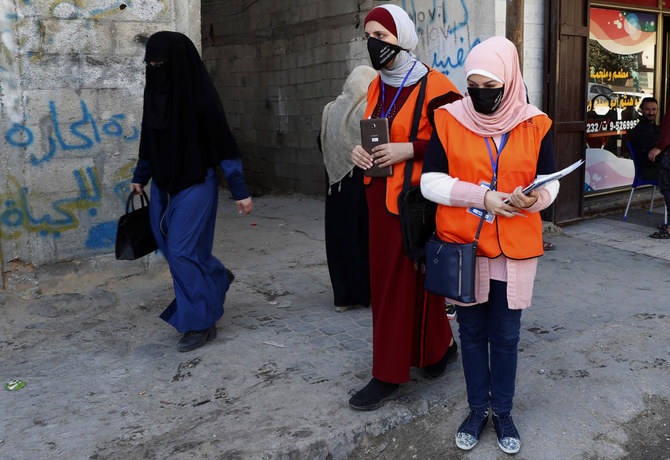CAIRO: After years of bitter division, rival Palestinian factions Fatah and Hamas have agreed on “mechanisms” for forthcoming elections and to respect the outcome of the polls.
In a 15-point final statement delivered at the end of the two-day talks in Cairo, the factions said that the elections would be held on the announced dates and that all obstacles to their implementation would be removed.
The factions asked Egypt’s President, Abdel Fattah El-Sisi, to direct Egyptian authorities to follow up on the implementation of the agreement and to take part in monitoring of the elections.
Last month, Palestinian President Mahmoud Abbas called for legislative elections on May 22 and presidential elections on July 31, provided that the formation of the Palestinian National Council will be completed on Aug. 31.
These will be the first legislative elections since 2006 and the first presidential elections since 2005.
The factions said in the final statement that the national partnership begins with the Legislative Council elections, followed by the presidential elections and then the formation of the National Council.
The statement noted the importance of adhering to the election timetable set by the presidential decree, with a commitment to accept and respect the results.
The deal provides for an “electoral court” — by consensus of judges from the West Bank, Jerusalem and Gaza — with exclusive jurisdiction over the electoral process and any cases arising from the elections, provided that the president issues a decree to form it.
The factions entrusted the task of election security to the police in the West Bank and Gaza.
The statement also said that polling “must take place in Jerusalem, the West Bank and Gaza, without exception,” adding that “public liberties and an atmosphere of political freedom” must be allowed as well as equal access to official media for all electoral lists.
The deal includes a commitment to immediately release all prisoners detained “on factional grounds or in relation to freedom of opinion.”
The agreement ensures freedom of political advertising, publishing and printing, holding political meetings, and ensuring the impartiality of the security services in the West Bank and Gaza and their non-interference in the electoral process.
The Cairo meeting also decided to submit a recommendation to the Palestinian presidency to consider amendments in several points of the election law, including insurance fees, resignation, and lowering the nomination age and the proportion of women.
Khalil Al-Hayya, a member of the Hamas political bureau, said: “The Palestinian factions and forces agree on the mechanisms for conducting elections for the National and Legislative Council and the presidency, including the formation of an election court by consensus.”
He added: “It was agreed to return to Cairo next March to lay the foundations and mechanisms for forming a new National Council through elections and consensus.”
The Popular Front for the Liberation of Palestine stressed the importance of completing the dialogue sessions next month to deal more comprehensively with the Palestine Liberation Organization and agreeing to strengthen the national resistance program that guides the Palestinian people’s struggle.
The front said that its delegation presented its vision of the foundations upon which all components of the Palestinian political system are built.
The Palestinian Islamic Jihad Movement decided not to participate in the elections as long as they were in line with the Oslo Accords.
Hamas, blacklisted as a terrorist group by the EU and the US, won an unexpected landslide at the last elections in 2006. That victory was not recognized by Fatah.
That led to violent clashes the following year and a split in Palestinian governance.
Fatah has since run the Palestinian Authority in the Israeli-occupied West Bank and Hamas has held power in the Gaza Strip since 2007, the year Israel imposed a devastating blockade on the coastal enclave.
Hamas leader Ismail Haniyeh, in a phone call on Tuesday, thanked Abbas for supporting the Cairo talks, saying he hoped for the “success of the elections and the end of the division,” according to the official WAFA news agency.


























